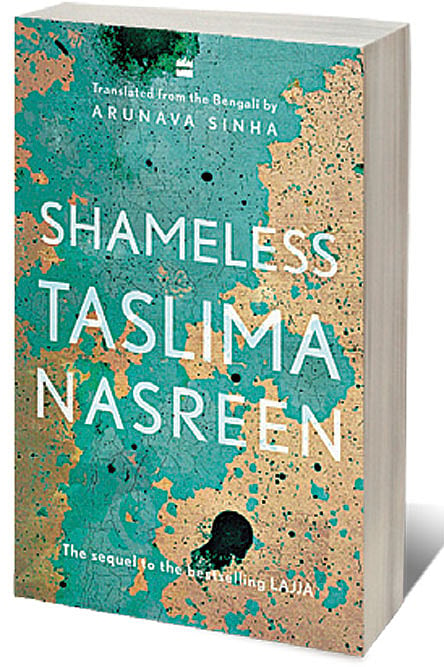Lesser Lives

IN 2007, WHEN exiled Bangladeshi writer Taslima Nasreen was living in Kolkata, she wrote Besharam (Shameless) in Bangla. The English translation of this novel, published by HarperCollins, has reached readers in 2020. Nasreen was under tremendous pressure back then. The police were constantly monitoring her movements under the guise of keeping her safe, the state government warned her about an Islamist conspiracy to kill her, suggesting she leave not just West Bengal, but the country, for her own good. Nasreen couldn’t contemplate leaving because she had come to love Kolkata. The city and West Bengal were her ‘last refuge’. Tormented by unrest, she started thinking about the characters in her 1993 novel, Lajja (Shame), at this time.
As is well known, after Lajja was published, Nasreen’s life was completely upended. Islamic fundamentalists issued a fatwa against her and she had to leave Bangladesh under duress. The novel was banned in Bangladesh. Nasreen spent years in Europe and the US before moving to Kolkata in 2004, where she ran into more trouble for publishing her memoirs.
Shameless, Lajja’s sequel, was born in Kolkata in 2007 as Nasreen began to wonder how similar her predicament was to Suranjan’s—the central character in Lajja who flees his native Bangladesh due to religious persecution. Suranjan and his family move to Kolkata in search of shelter in Lajja. He was in the city; how was he faring, Nasreen wondered in 2017. Did he ‘feel the same way when he was driven into exile?’ Were his ‘hurts and heartaches’ similar to hers? Shameless set out in search of the answers.
AIming High
20 Feb 2026 - Vol 04 | Issue 59
India joins the Artificial Intelligence revolution with gusto
Nasreen casts herself as a character in Shameless. Nasreen (the author figure) encounters her cast of fictional characters and delves into their lives. Shameless starts when Suranjan comes knocking on Nasreen’s door. Suranjan’s knock is a gesture that demands access to both Nasreen’s flat and her consciousness. She is the author who turned Suranjan’s life into art in Lajja. In its sequel, she meets Suranjan and his family face to face and is compelled to answer their questions, hear stories about the new life they have tried to build in Kolkata and feel the tremors of violence and religious persecution that rock their lives in India.
Shameless grapples with the spectres of communalism, religious extremism and the politics of hate that haunt the Indian subcontinent. Suranjan, his sister Maya and his parents fled to Hindu-majority India in the hope of finding refuge when riots erupted in Dhaka after the Babri Masjid was torn down. But the Duttas soon find out that no place is safe for the refugee. Violence and extremism disrupt their lives in horrific ways in Kolkata as well.
Nasreen chronicles their lives without flinching in Shameless. The reader is forced to bear witness to the many tragedies that befall the family. Loss of livelihood and dignity, poverty, the oppressive norms of patriarchy—all cast dark shadows on their lives. Their dream of starting afresh in Kolkata is shattered. As the narrative unfolds, it becomes clear that relocating from Bangladesh to India, for both the relatively privileged Nasreen and the hapless Duttas, has been a journey from ‘one country of religious fanatics to another’.
Nasreen’s style is direct. Subtlety is not her strong point, but she bravely shines the spotlight on a dangerously polarised society, and the widening faultlines of religion, caste, class and gender. The divide between the author figure and the characters she creates and the dynamic between them which is complicated by the imbalances of class and power are sketched with deft strokes. Nasreen is deeply interested in the lives of the characters and she dives headlong into their world, but there are some lines she cannot cross, and a certain degree of access she cannot gain despite her privilege and wealth.
Shameless does a fine job of letting the exiled and the persecuted tell their stories in their own voices and making their presence felt. Their many dilemmas are laid bare. The questions that haunt refugees in a society ravaged by communalism are bound to haunt readers as they turn the pages.

